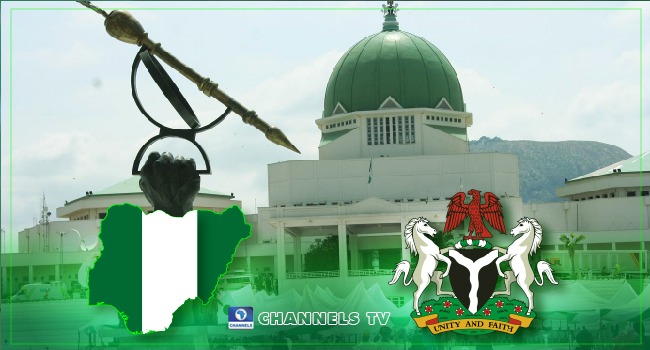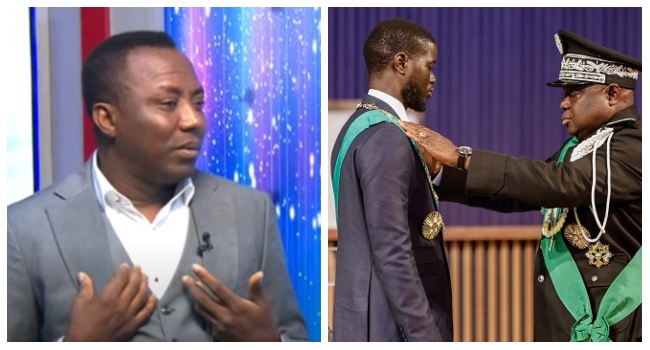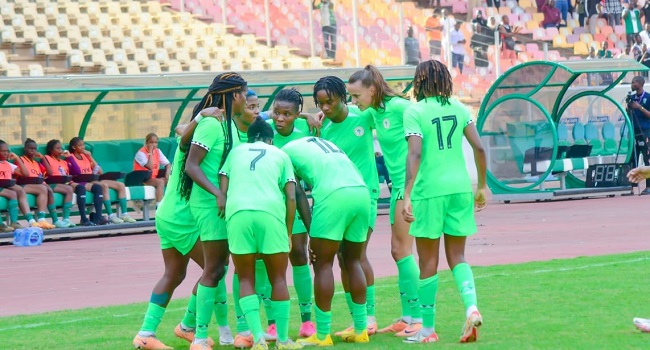At 59, Nigeria has continued to survive, against all odds. The country hasn’t lived up to its shimmering potential, but it has also not been all gloomy. Here are a couple of moments that have defined the country since independence in 1960.
1960 – Independence
Nigeria achieved independence from Great Britain on October 1, 1960. On October 1, 1963, Nigeria became a republic.
Why it matters:
Independence gave Nigerians the freedom to govern themselves.
1966 – First Coup
Nigeria’s first coup was orchestrated by Chuwkuma Kaduna Nzeogwu and Emmanuel Ifeajuna. Since then, the country had been embroiled in numerous conflicts over elections and tribal sentiments.
Why it matters:
The first coup ushered in the military into the governance of Nigeria, ending the First Republic. The military would go on to lead the country
for more than two decades in total.
1967 – Civil War
The Nigerian Civil War, also known as the Biafran War and the Nigerian-Biafran War, started on July 6, 1967 and ended on January 15, 1970.
Why it matters:
It was the longest, most devastating conflict in the young nation’s history. It was also the most serious threat to the continued existence of a united Nigeria.
1973 – Naira adopted
In 1973, the country adopted a truly national currency in decimal form instead of the Pounds, replacing the imperial system which she inherited from the British colonial administration.
Why it matters:
Adopting a fully homegrown currency put the country’s financial planning into its hands.
1973 – NYSC starts
There is no military conscription in Nigeria, but since 1973, graduates of universities and later polytechnics have been required to take part in the
National Youth Service Corps program for one year.
Why it matters:
The NYSC scheme was created in a bid to reunify the country after the Nigerian Civil War. It is perhaps Nigeria’s largest and most enduring national integration project.
1978 – ‘Arise O Compatriots’ adopted
Nigeria adopted a new national anthem in 1978, replacing ‘We Hail Thee’, which had been composed by a British expatriate living in Nigeria.
Why it matters:
The national anthem is perhaps one of the most important national treasure, a call of action that seeks to unify and galvanise the country into
greatness.
1979 – Obasanjo hands over to Shagari
Nigeria’s second attempt at democracy started in 1979, when Military Head of State, General Olusegun Obasanjo, handed over to civilian President, Shehu Shagari.
Why it matters:
The Second Republic did away with the parliamentary system of governance in favour of the presidential system, although it was another experiment
that ended in failure.
1983 – Buhari topples Shagari
On December 31, civilian president, Shehu Shagari was toppled by the military, effectively ending the Second Republic.
Why it matters:
The end of the Second Republic meant Nigeria’s second attempt at democratic governance failed. It also ushered more than a decade of military rule.
1986 – Dele Giwa Assassinated
Journalist, Dele Giwa, was killed by a mail bomb in his Lagos home on October 19, 1986, just two days after he has been interviewed by State Security
Service (SSS) officials.
Why it matters:
Giwa’s death typified the country’s intolerance against free press, and marked one of the biggest blows to press freedom in Nigeria’s history.
1986 – Soyinka awarded Nobel Prize
Wole Soyinka was awarded the Nobel Prize for Literature in 1986, becoming the first African to be so recognised.
Why it matters:
The award added to the prestige of the country’s literary canon and helped to inspire a new generation of literary giants.
1992 – ‘Living in Bondage’ released
Living in Bondage, a film produced by Kenneth Nnebue, was shot and released.
Why it matters:
It was the breakout straight-to-video film which helped to lay the foundations for Nollywood, an industry which is now globally recognised and respected.
1993 – June 12 election
Considered as the freest and fairest election ever conducted in Nigeria, June 12, for many, represents one of the biggest opportunities passed up by the country.
Why it matters:
It showed that a virile form of democracy was possible in the country.
1993: Babangida hands over to Shonekan
Under intense political pressure, Ibrahim Babangida handed over to Ernest Shonekan in 1993, completing another military to civilian handover.
Why it matters:
It created a poorly accepted interim government, which unwittingly paved the way for arguably the most notorious military regimes in the country.
1993 – Abacha sacks Shonekan
Supposedly preempting a coup action by radical junior officers, Sani Abachi overthrew Ernest Shonekan on November 17, 1993.
Why it matters:
Abacha’s action effectively set in motion one of Africa’s most vicious, corrupt and intolerant military governments.
1995 – Ken Saro Wiwa hanged
Activist and writer, Ken Saro-Wiwa was hanged in Port Harcourt on November 10, 1995.
Why it matters:
Saro-Wiwa’s execution summed up the callousness of the Abacha regime, which was infamous for silencing and eliminating any form of political dissent or activism.
1996 – Nigerian wins Olympics Gold in Soccer
Nigeria beat Argentina 3-2 to win Olympic Gold in soccer for the first time.
Why it matters:
The Olympic gold medal was Africa’s first in soccer and remains the country’s biggest international achievement in the round leather game.
1996 – Chioma Ajunwa wins Gold
At the 1996 Olympics in Atlanta, Chioma Ajunwa became the first Nigerian athlete to win an Olympic gold medal. She specialised in the long jump.
Why it matters:
Ajunwa wasn’t just the first Nigerian to win an Olympic gold medal, she was also the first black African woman to win an Olympic gold medal in a field event.
1998 – Abacha dies
Sani Abacha died on June 8, 1998, reportedly of a heart attack. He was 54.
Why it matters:
Abacha’s death put an end to his authoritarian regime and laid the foundation for the birth of the Fourth Republic.
1999 – Abdusalami hands over to Obasanjo
On May 29, 1999, former Military Head of State, Olusegun Obasanjo, became Nigeria’s first elected civilian President after Shehu Shagari.
Why it matters:
This was the beginning of the Fourth Republic and Nigeria’s next attempt at democracy.
This ushered in Nigeria’s Fourth Republic, the country’s most enduring so far.
2001 – Nigeria deregulates telecoms sector
The federal government liberalised the telecommunications network in 2001.
Why it matters:
Deregulation allowed the telecoms industry to thrive, making Nigeria one of the leading growth markets for mobile technology.
2001 – Agbani Darego wins Miss World Competition
Agbani was an 18 year-old Nigerian computer science student when she won the 51st Miss World pageant held in Sun City, South Africa.
Why it matters:
Her victory represented the first win for a black African and news about the triumph dominated the media amounting also to a win for a resurgent Nigerian lifestyle industry.
2007 – Yar’Adua succeeds Obasanjo
On May 29, 2019, Umaru Yar’Adua was sworn in as Nigeria’s new president in Abuja.
Why it matters:
The inauguration was the first time in Nigeria’s history that one civilian leader had taken over from another.
2009 – Boko Haram blows up
In July 2009, Boko Haram chief, Muhammed Yusuf, was killed in police detention.
Why it matters:
Yusuf’s death set off the Boko Haram crisis, which had been simmering for years.
2009 – Nigeria grants Niger Delta Militants Amnesty
After years of conflict, the federal government offered Niger Delta militants amnesty in August.
Why it matters:
The offer helped to reduce unrest in the oil-rich Niger-Delta, which is crucial to the nation’s economic fortunes.
2010 – Yar’Adua dies
President Umaru Musa Yar’Adua died in May 2010, after a long battle with an illness shrouded in secrecy.
Why it matters:
Yar’adua’s death ended the power vacuum and political and economic uncertainty that had been created by his protracted illness and paved the way for his Deputy, Goodluck Jonathan, to take over.
2011 – Jonathan is elected as President
Goodluck Jonthan was declared winner of the 2011 Presidential Election, which was held in April that year.
Why it matters:
It was the first time an individual from the South-South, which is mostly made up of minority tribes, would lead the nation.
2014 – Chibok girls abducted.
On the night of April 14, 276 female students were kidnapped from the Government Secondary School in the town of Chibok in Borno State.
Why it matters:
The abduction attract global condemnation and shed a spotlight on the gruesome reality set in motion by the Boko Haram crisis.
2014 – Adadevoh helped curb the spread of Ebola
In July 2014, Dr Stella Ameyo Adadevoh raised a red flag when attending to a Liberian patient at the First Consultant Hospital in Lagos.
Why it matters:
Dr Adadevoh’s action and ultimate sacrifice helped to prevent a catastrophic spread of Ebola in one of the most densely populated cities in the world.
2015 – Buhari defeats Jonathan
Former military dictator Muhammadu Buhari defeated incumbent Goodluck Jonathan in Nigeria’s presidential poll by 2.57 million votes.
Why it matters:
It was the first time an incumbent President was defeated in an election in Nigeria, further strengthening the nation’s fragile democracy.





